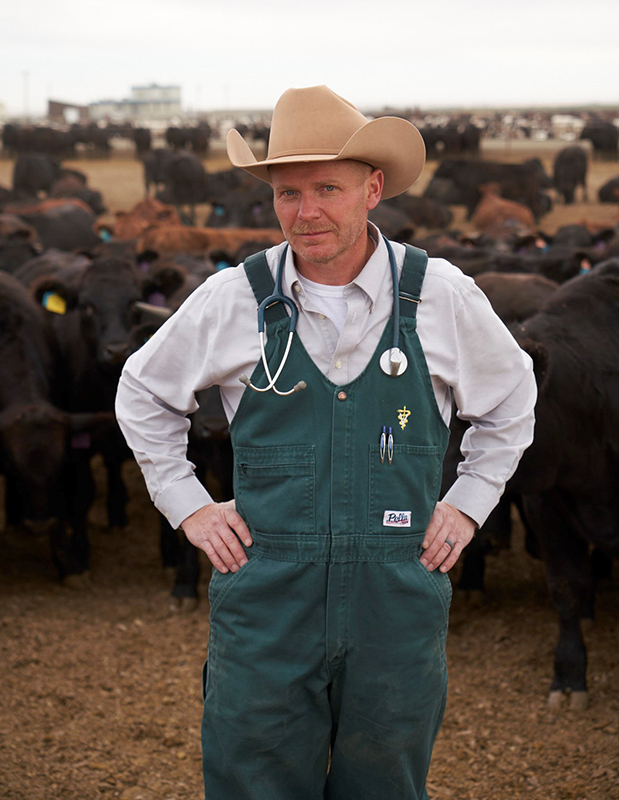
His Dream Job
He knew he should have been studying.
But Dr. Eric Behlke, then a first-semester veterinary student, just couldn’t shake the feeling he had more important things to do than focusing on his upcoming anatomy final.
“I was studying for finals in the library and I asked myself ‘why I was in vet school?” Behlke recalled.
The answer came almost instantaneously.
“I wanted to be a vet,” Behlke said. “It was my dream job and right then and there I decided where I wanted to work.
“I stopped studying and typed a letter to Feedlot Health Management Services by Telus Agriculture (Feedlot Health), who I had previously identified as leaders in the field of feedlot medicine and production consulting, telling them I intended to work there after graduation.”
Graduation was still three-plus years away. Behlke’s eagerness to work at Feedlot Health must have struck a chord with the company. It wasn’t much later that he received a reply from the Canadian firm, encouraging him to stay in contact and at some point, to meet face to face.
Today that email is framed and hanging in Behlke’s Okotoks, Alberta, office.
After graduating from Iowa State with his DVM (he also holds a master’s in animal science from The Ohio State University and a PhD in animal science from the University of Nebraska), Behlke joined Feedlot Health, a professional services company that provides comprehensive herd health programs, veterinary services, and veterinary and production consulting services around the globe.
He has been there ever since. After three years he was offered and accepted an ownership stake in the company, and he currently leads the individual Animal Management Team. While he is headquartered in Calgary, his job frequently takes Behlke to the USA, Kazakhstan, and even Mexico on occasion.
The Nebraska native has become known for applying data toward practical management decisions in feedlot health management. He describes himself as a professional services veterinarian and production consultant.
“I had an early fascination with cattle,” Behlke said. “I have lived and breathed beef cattle my whole life. Cattle are unique animals in that they have the ability to convert cellulose to protein, and I truly love working with not just the animals, but also the people who are raising and caring for them.”
It doesn’t matter if Behlke is in Canada, his home state of Nebraska or halfway around the world in Kazakhstan, he says the people in the industry are one and the same.
“There is a common thread among these individuals,” he said, “and that’s the general love for the animals we care for.”
In his role with Feedlot Health, Behlke spends a vast majority of his time on-site, communicating with clients. He is constantly reviewing data from his clients and advising them on decisions relating to herd health going forward.
Feedlot Health oversees more than four million head of cattle annually with their clients ranging from small operations of 500 head to over 150,000 in one location. Regardless of the size or location of the feedlot, Behlke says the challenges and opportunities on feedlot operations are surprisingly similar, just on different scales.
“Since we are an international firm, it is important for me to know and understand any differences and make the appropriate adjustments in what we recommend,” he said. “That’s what keeps the job exciting.”

